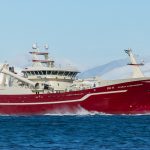World fishing, fisheries and aquaculture have over the last two decades become politicised hot potatoes. One of the advantages of this has been the raising of awareness of issues in global fisheries that must be addressed if the world’s populations are to continue to feed themselves on the healthy bounty that the oceans have to offer.
I and my company have a strongly vested interest in ensuring that our fisheries remain viable, productive and are utilised sustainably. Having profitable business is important to anyone who has or wants to have a job, a home, a future for their families. The issue of sustainable and well managed fisheries is critically important to us.
Seafood is big business in New Zealand as we control the world’s fourth-largest fishing zone. As the country’s fifth largest export industry, the seafood industry employs more than 20,000 people in a wide variety of jobs from land-based scientific roles to hands-on positions at sea. Its economic and cultural value to our country should make it equally as important to all New Zealanders. We cannot afford to lose a seafood industry that is a significant proportion of the foreign exchange and the taxes that provide our healthcare, roads, schools and emergency services. The industry’s economic and cultural value to our country should make it equally as important to all New Zealanders. Being able to enjoy our coastal environment and catch a fish for pleasure or to provide for our families or go out is part of the New Zealand way of life.
What is of great concern to me is not what is happening in New Zealand waters or being done by New Zealand fisheries companies. What concerns me is how we can bring firstly other developed countries and, following that, the emerging economies up to the standard of New Zealand’s fisheries management and best practice and at the same time eliminate the subsidies in many countries that distort sustainable fishing practices.
Around the world fisheries are still affected by ‘pirate fishing’, known as IUU (illegal, unregulated and unreported) fishing. This is a big concern for the New Zealand seafood industry and government alike. IUU fishing undermines the hard work and commitments we have made in ensuring our fisheries are sustainable. IUU fishing is not just an overseas issue but also unfortunately happens in New Zealand, particularly in our rock lobster and paua fisheries.
One of the most reported stories in the New Zealand seafood industry of IUU fishing is in the paua sector. The government and seafood industry have recently run a joint campaign to stamp out paua poaching. This has been a high profile campaign reinforced weekly on the TVNZ programme Coastwatch which has aimed to raise awareness of the issue of IUU fishing.
It was with some relief that I welcomed Maersk’s decision to refuse shipping services to IUU seafood announced in the media recently. As the world’s largest shipping company Maersk’s move to refuse shipping any seafood product caught illegally sends out the right message to fishing ‘pirates’ and modern-day ocean going thieves – the net is closing on companies and individuals engaging in illegal fishing. The New Zealand industry will gain significant economic benefit from the elimination of IUU and subsidised seafood products from world markets. It is already gaining benefits from species that are or are likely to be certified in the near future as sustainable by the international body Marine Stewardship Council such as hoki, ling, hake, southern blue whiting, toothfish, albacore, scallops and snapper.
There is public concern about the sustainability of the world’s fisheries. New Zealand’s fisheries are however highly regulated, unsubsidised, and carefully researched and utilised. Regrettably they are also the target of excessive lobbying from some environmental groups, and I believe unfairly so. The Maersk decision is an example of this, with Greenpeace releasing an incorrect media statement suggesting the carrier would not transport New Zealand-caught orange roughy, toothfish or bluefin tuna. Greenpeace have not, as far as I am aware, released a correction even after it was revealed that their statement was incorrect.
By all means, I believe we should all speak out against IUU fishing but we should certainly not be condemning a management system that has time and time again been rated best in the world and continues to improve.
The sustainable management of a fishery is a complex process and I urge you to be wary of ‘simple’ explanations or suggestions of ‘easy’ actions you can take as offered by some environmental groups. These lobby groups often attempt to advise the consumer on what they believe ‘sustainable seafood’ is, this is done by providing recommendations and guides, usually characterised as red and green lists. This in itself raises questions about the tests they applied, the scientific research they relied on, the qualifications of the people who write these guides and whether they understand the terms ‘exploited, under exploited, overexploited or depleted’ or chose to use these terms in a way that you are unlikely to understand.
For Sanford, ‘sustainable seafood’ means ensuring that the seafood we farm and harvest is carried out in a manner that has the least impact on the environment and guarantees the continued availability of the resource for generations to come. For almost 10 years now we have reported on our environmental, social and economic progress in detailed sustainable development reports on our website.
By all means I encourage consumers to question the New Zealand seafood industry and research the facts. I believe you will find a well managed and sustainable fishery, in fact one of the best and most reliable in the world.








